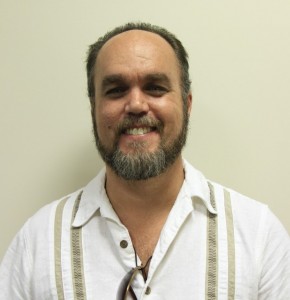 It is a fact that it is not easy being black or Latino in the United States. More specifically, it’s not safe, particularly for boys and young men. As a nation we seem reluctant to fully confront this reality, or to address its causes and long history. In some quarters there is also an obstinate unwillingness to acknowledge anything beyond personal responsibility or to extend assistance to people based on social and historical realities.
It is a fact that it is not easy being black or Latino in the United States. More specifically, it’s not safe, particularly for boys and young men. As a nation we seem reluctant to fully confront this reality, or to address its causes and long history. In some quarters there is also an obstinate unwillingness to acknowledge anything beyond personal responsibility or to extend assistance to people based on social and historical realities.
In this world view those having a tough time — the poor, minorities, the unemployed, drug users, juvenile delinquents and others — have only themselves to blame for their situation. If you point out facts like black boys “are more likely to drop out of school, less likely to find good jobs, and more than six times as likely to be murdered than young white men,” you might hear back something about morality and family. There is a fundamental disconnect from the fact that a black baby boy born today is more likely to be murdered and society’s role in that reality.
Consider President Obama’s recent kick off of a new charitable effort, My Brother’s Keeper. Aimed explicitly at addressing the needs of young black and Latino men, the initiative will connect religious leaders, celebrities, athletes and business people. Some $200 million has already been pledged by various charity groups to fund the project.
As the president said: “The plain fact is there are some Americans who, in the aggregate, are consistently doing worse in our society, groups that have the odds stacked against them in unique ways that require unique solutions.” Critics of the president and of social intervention are quick to point out the role of individual choice in these statistics, as well as the influence of parenting. They also will talk about rap music, out of wedlock teen birth and sagging pants.
Arguments like these are a red herring, and often confuse both cause and effect as well as causation and correlation. No doubt it is not optimal for a teen mother with little resources to have a kid for instance, but this occurrence doesn’t necessarily indicate lack of morality or poor upbringing. Most importantly, these factors can’t explain the larger picture. Blacks statistically suffer from higher rates of poverty and unemployment. These are correlated with higher crime, divorce, substance abuse and lower quality education.
As Mike Males pointed out in his recent op-ed for JJIE, false attribution of causes (in his case the link between age and crime) takes on hues of mythology. This is dangerous not only because it points to a cause that is false and wastes resources on addressing that cause, it also often ignores or minimizes the real causes. In the case of young black men the cause is systemic oppression and structural racism and violence. From slavery to Jim Crow to zero tolerance to mass incarceration the targets have been black. This historical and ongoing attack has taken a toll on black families by negatively affecting a slew of economic and social factors.
Paul Butler, a law professor and former federal prosecutor told NPR’s “Tell Me More” that “black male achievement programs ... are well intentioned, but ... make some mistakes including not understanding the forces that are holding black and Latino men back.” Specifically, he pointed out that most of these programs focus on behavioral modification, which is not so much inherently bad as it is deeply and perhaps willfully ignorant. One of the prime markers of structural racism is that those who benefit from it don’t have to acknowledge its existence and role in how things work. This is why people can decry sagging pants, criminal behavior, music or whatever and be totally blind to the inequality that most black people are born into.
Yes, it takes families and individuals to create change, and there is nothing wrong with efforts to strengthen these things. However, it takes a society too, one that is willing to address its profound flaws and historical legacy of slavery and its shadow. That is the only way we will change as a culture and as a nation.